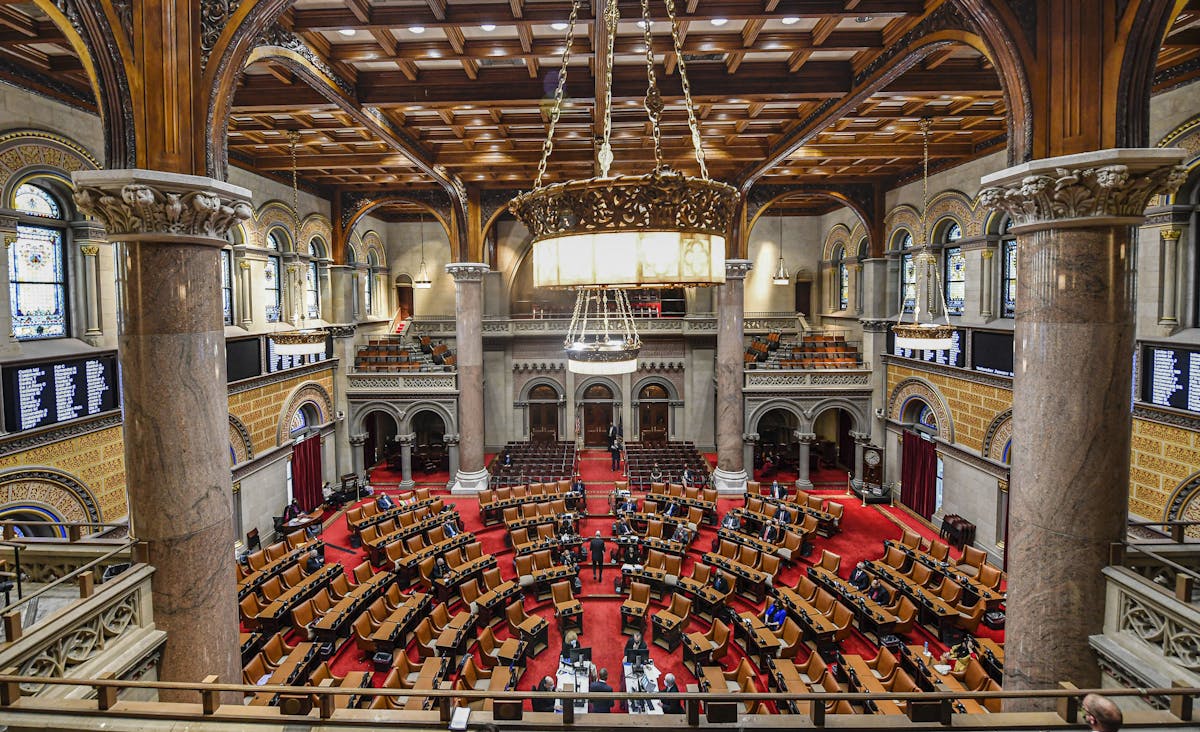Democrats Add New York as a Feather in Redistricting Cap
Republicans look to be losing the national redistricting process following the 2020 Census.

New York will likely see its Republican congressional delegation cut in half after the 2022 election cycle, part of what looks to be an unlikely win for Democrats in the national redistricting process.
New York State’s Democrats yesterday put forth a congressional map that would give the party 20 safe seats to four for the Republicans, with only two highly competitive districts.
This came after the state’s bipartisan redistricting commission failed to put forth any successful option, thus putting the process in the hands of the state legislature, which is controlled by Democrats.
The new map is likely to result in the Republican House delegation shrinking to four from eight representatives. The most optimistic scenario has Republicans winning six districts.
For reference, Pew Research Center found that about 28 percent of New Yorkers lean Republican and 53 percent lean Democratic, while about 19 percent have no strong party preference.
The new state map is part of a growing national trend in the wake of the 2020 Census, with Democrats outperforming expectations in redistricting.
For example, the new Illinois map has Democrats expecting to pick up two seats and Republicans losing three. Likewise, Democrats seem set to pick up two seats in Oregon, with Republicans retaining their single representative from the state.
The newly approved map in New Mexico removed all likely Republican seats, with two competitive districts remaining. State Republicans have sued to change the map.
In Florida, meanwhile, Republicans are struggling to reach consensus on one of four maps of varying viability. The most aggressive, favored by Governor DeSantis, has raised questions because the 5th district, which is protected by the Voting Rights Act, would be eliminated.
In contrast, the map put together by Florida’s state senate would not expand the Republican majority at all, opting mostly for the status quo. Florida’s house floated a map that would provide one more Republican seat than the current number.
Texas is also looking to remain basically the same — 13 Democratic seats, 26 Republican seats, and five competitive districts — though that could change following a Department of Justice lawsuit alleging that the new map intentionally dilutes the power of Hispanic and African-American voters.
In some other Republican-controlled states, the party has been unable to gain seats. Arkansas, Idaho, Wyoming, and both North and South Dakota are examples of states where Republican-controlled redistristricting will not result in any party gains in representation.
While some Democratic-led states, such as California and Colorado, have ceded power to independent commissions and not pushed for gains by that party, the overall redistricting process looks surprisingly good for Democrats.
Overall, Democrats appear to have a slight edge in the maps that so far have been adopted for 2022, and it looks likely that other new maps will be more beneficial than those drawn after the 2010 Census. Fifteen states have yet to approve new maps.
Joel Wertheimer, a fellow at the liberal think tank Data for Progress and policy consultant, projects that the 2020 Census will be a boon to Democratic prospects for the next 10 years.
“Based on draft maps likely to be approved, maps that have been reported on, or simple conjecture, we can project 212 seats to be to the left of Joe Biden’s 4.5 point 2020 margin, compared to the 203 seats that were to the left of his margin in 2020,” Mr Wertheimer said.

